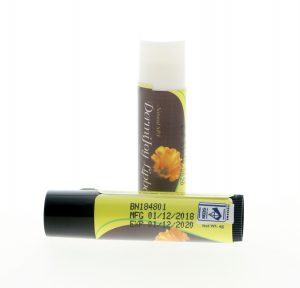Acne is a condition where the skin’s oil glands become clogged, forming spots, pimples, blackheads, whiteheads, and sometimes cysts (Brazier, 2017). When the hair follicles get blocked, oil builds up under the skin. In most cases, bacterial infection occurs, and inflammation results which is marked by swelling.

There are several risk factors for acne which include genetics, hormonal fluctuations brought about by adolescence, pregnancy and birth, stress, weight, and elevated sugar levels. Cosmetic products that clog the skin also cause acne. In the recent past, researchers have identified an imbalance of gut flora as one of the leading causes of acne.
The spotlight is on probiotics in addressing gut-related triggers of acne. Simply put, probiotics are food products or dietary supplements that contain beneficial bacteria or yeast found in the human body. When consumed, they help to improve and restore the gut flora. Probiotics not only keep acne at bay, but they give your skin a healthier appearance 🙂
Common food probiotics include yoghurt with live cultures, cultured milk products like maziwa mala and Mursik (traditional fermented milk by the Kalenjin community). Common bacterial cultures found in yoghurt are Lactobacillus bulgaricus, Streptococcus thermophiles, Lactobacillus acidophilus, Lactobacillus subsp. casei, and Bifidobacteria. The function of the starter cultures is to ferment lactose (milk sugar) to produce lactic acid. The increase in lactic acid decreases pH and causes the milk to clot, or form the soft gel that is characteristic of yoghurt (Milk Facts).

Several Lactobacillus sp. have been isolated in Mursik: Lactobacillus plantarum, Lactobacillus fermentum, Lactobacillus brevis and Lactobacillus casei. (Digo et al., 2016).

Another locally available food probiotic is fermented porridge/uji. There is Kirurio and Ucoro wa Mukio by the Ameru and Agikuyu communities respectively.

The presence of the bacterium Propionibacterium acnes (P. acnes) on the skin is usually responsible for acne pathogenesis. P.acnes releases lipase that produces fatty acids by digesting sebum, creating inflammation of the skin. Probiotics have been shown to directly inhibit Propionibacterium acnes (P. acnes) through the production of antibacterial proteins. Strains of Lactococcus sp. have been found to exhibit antimicrobial activity and inhibit the growth of Staphylococcus epidermidis, Staphylococcus aureus, Streptococcus pyogenes, and P. acnes through the secretion of bacteriocins (Kober & Bowe, 2015).
Probiotic supplements also help in restoring the gut flora, and they largely comprise bacteria and yeast probiotics. The most common yeast found in probiotics is Saccharomyces boulardii. Probiotic bacteria include Lactobacillus sp. and Bifidobacteria sp. Yeast and bacteria probiotics are commonly used in the treatment of diarrhoea, irritable bowel syndrome, and other gut-related disorders. They also address gut-related triggers of acne by helping to improve the health of the gut microbiome.

In recent years, the beauty industry has been hit by the emergence of skin probiotics. These are skincare products with live cultures that exhibit antimicrobial activity against P.acnes. They are also touted to strengthen the skin barrier, reduce inflammation and regulate oil production. All these benefits are undoubtedly promising, but the jury is still out there concerning the safety of skincare products containing live cultures!
In conclusion, dietary probiotics/supplements are readily available in pharmacies without prescription, but it is important to take them under the advisory of a doctor. However, you can indulge in food probiotics as much as you want 🙂 to improve your gut health, and for a healthier skin appearance.

Terry Wangechi- the author is a Biochemist, Research Scientist, Skincare Formulator, and Founder- DermiJoy Skincare
References
Brazier, Y. (2017). What you need to know about acne. Medical News Today. Retrieved from
https://www.medicalnewstoday.com/articles/107146#causes
Digo, C.A., Kamau, M. E., Matofari, J.W. & Ng’etich, W.K. (2016). Potential probiotics from traditional fermented milk, Mursik of Kenya. International Journal of Nutrition and Metabolism. 10(9), 75-81.
Kober, M.M. & Bowe, W.P. (2015). The effect of probiotics on immune regulation, acne and photoaging. Int J Womens Dermatol. 1(2), 85-89.
MilkFacts. Yoghurt Production. Retrieved from
http://www.milkfacts.info/Milk%20Processing/Yogurt%20Production.htm





